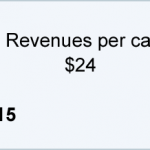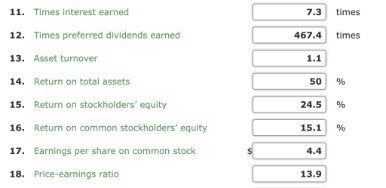
These reports are essential for communicating a company’s financial health to investors, creditors, and other stakeholders. GAAP is the set of standards and regulations any publicly traded company in the U.S. is legally required to follow when preparing financial documents. Any accountant handling financial reports and information for these companies must adhere to GAAP guidelines. GAAP ensures companies generate clear, comprehensible and comparable financial data regardless of industry, status or affiliations. GAAP is meant to ensure consistency, accuracy, and transparency in financial reporting and aims to provide a reliable foundation for investors to make informed decisions.

to earn money by writing high-quality blog posts
Keeping the retained earnings account up-to-date is important for investors and lenders who need to track the company’s performance over time. The first three basics comparison of job costing with process costing of bookkeeping discussed above are what you’ll find in the Balance Sheet. To balance the books, you need to carefully monitor the assets, liabilities, and equity. Some businesses start off by using the cash basis and as they grow, they shift to the accrual basis of accounting.
What is GAAP vs. IFRS?
Bookkeeping data is used for financial analysis, allowing businesses to assess performance, plan for the future, and make informed financial decisions. IFRS rules ban using last-in, first-out (LIFO) inventory accounting methods, whereas GAAP permits LIFO. Both systems accept the first-in, first-out (FIFO) and weighted average-cost methods. Knowing these nine bookkeeping basics is essential for any bookkeeper to perform their job well.
It provides a more accurate picture of a company’s financial performance over time. The company should record accounting transactions in accrual accounting the same period it happens, not when the cash flow was earned. As per the accrual principle, the sales should be recorded during the period, not when the money would be collected.
Here’s a list of more than 5 basic accounting principles that make up GAAP in the United States. I wrote a short description for each as well as an explanation on how they relate to financial accounting. Whether you’re setting up a new business, managing an existing one, or providing bookkeeping services, these principles are the foundation upon which successful financial management is built. Take the time to understand them, apply them diligently, and you’ll be well-equipped to handle the complexities of financial record-keeping with confidence and accuracy.
Therefore, most companies and organizations in the U.S. comply with GAAP, even though it is not a legal requirement. Generally accepted accounting principles (GAAP) are uniform accounting principles for private companies and nonprofits in the U.S. These principles are largely set by the Financial Accounting Standards Board (FASB), an independent nonprofit organization whose members are chosen by the Financial Accounting Foundation. Accounting information is not absolute or concrete, and standards are developed to minimize the negative effects of inconsistent data. Without these rules, comparing financial statements among companies would be extremely difficult, even within the same industry.
- In December 2022, the SEC updated the standards it uses when evaluating financial disclosures that contain pro forma reporting.
- It’s important to keep payroll expenses accurate and updated to ensure the business meets legal requirements.
- The foundation of bookkeeping is built upon several fundamental principles that guide the recording and reporting of financial transactions.
- Now the accountant has to choose one from two choices – first, ignore the loss the company may incur on selling the machinery before it’s sold; second, report the loss on machinery immediately.
When Were Accounting Principles First Set Forth?
It states that revenue should be recorded when it is earned and realized, not necessarily when cash is received. The fundamental objective is to record all financial transactions promptly and accurately. This includes tracking sales, ein number purchases, expenses, and any other financial activities. Many jurisdictions require businesses to maintain accurate financial records for tax purposes and regulatory compliance.
Federal endorsement of GAAP began with legislation like the Securities Act of 1933 and the Securities Exchange Act of 1934, laws enforced by the U.S. Today, the Financial Accounting Standards Board (FASB), an independent authority, continually monitors and updates GAAP. These adjustments are made when revenue has been earned or expenses have been incurred but not yet recorded. These accounts are organized in a systematic manner, making it easier to track and analyze financial activities.
